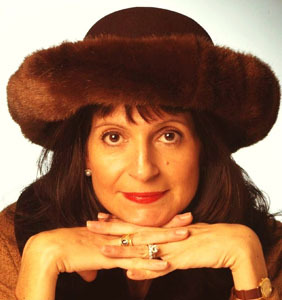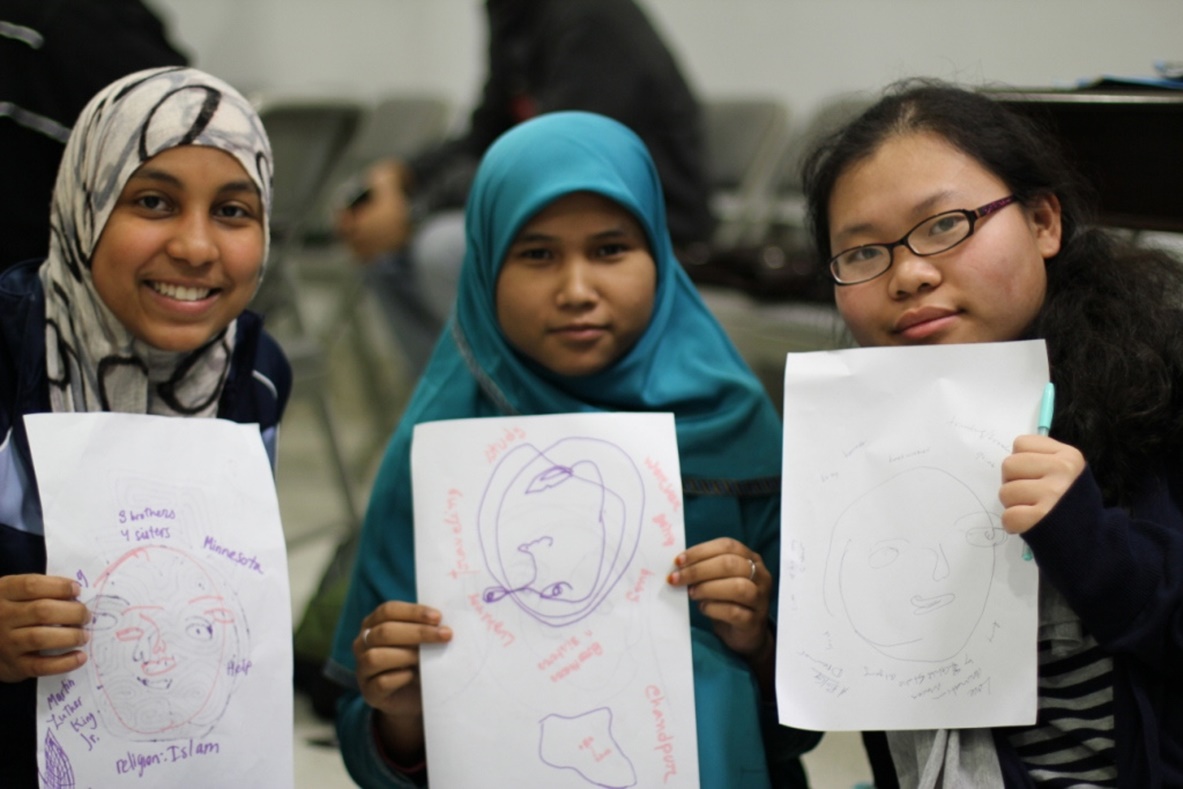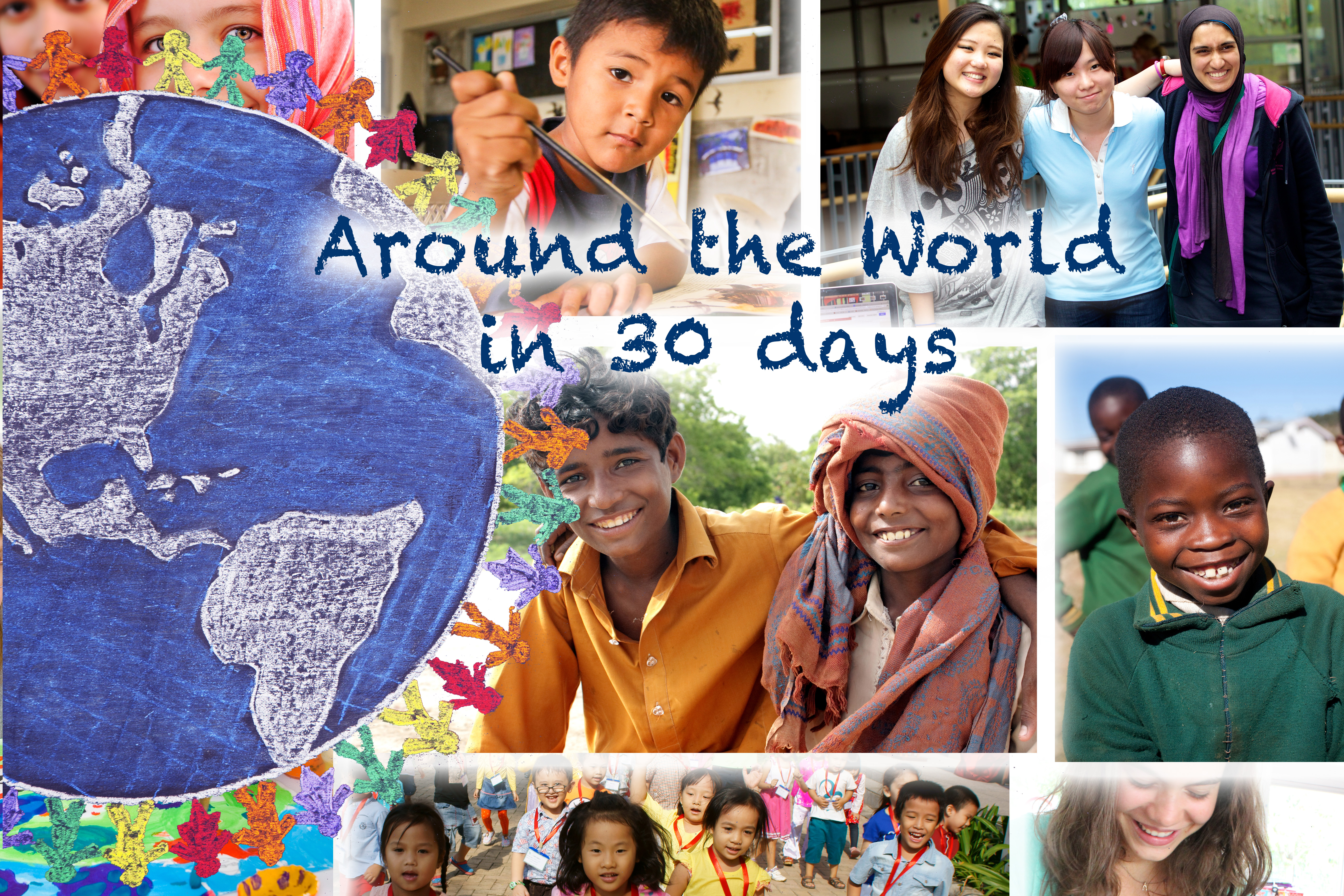
In March, I continued my conversations with thought leaders around the world. The ABC of Gender Equality in Education: Aptitude, Behaviour, Confidence report from PISA was yet another wake up call to the status of gender in education today. I also learned of new global initiatives to make education more accessible and more ecologically sustainable. Additionally, I continued my conversation with our Top 12 global teacher bloggers on the topic of technology. The questions posed this month: What are the biggest mistakes teachers make when integrating technology into the classroom? The majority thought that using tech as a toy, reward, or drill-and-kill tool got in the way of the creative potential it reaps when applied to a rigorous lesson plan.
Francesca Borgonovi (PISA analyst) and Marilyn Achiron (education editor) filled me in on their latest study about gender equality in education, as detailed in this year’s PISA report. The report shows that economic inequality in pay is at least partially attributable to women pursuing less lucrative careers than men. Women don’t go into science and engineering nearly as often as men do, and have lower self-confidence in this area (despite testing similarly). Borgonovi and Achiron offered this advice: “Training teachers to recognize and address any biases they may hold about different groups of students – boys and girls, socio-economically advantaged or disadvantaged students, students from different ethnic or cultural traditions – will help them to become more effective teachers and ensure that all students make the most of their potential.”
Bill Gaudelli (Teachers College – Columbia University), Dana Mortenson (World Savvy), and Jessica Kehayes (Asia Society) discussed the new and fascinating initiative, the Global Competence Certificate (GCC). This is the premier, online, graduate-level certificate program in global competence education for in-service educators developed by Teachers College – Columbia University, World Savvy, and the Asia Society. According to Gaudelli and Martenson, “GCC courses include a variety of activities that encourage collaboration with colleagues, co-development of work products, dialoging across and about difference, inquiring into complex subject matters that defy facile explanation, experiencing life in another part of the world and working with colleagues to translate all of this into their classroom teaching.”
Finally, I invited Sir Ken Robinson and other thought leaders involved in The Creative Oklahoma World Forum (@OK_Creativity) and their #YourIdeasMatter campaign to share their ideas. The campaign focuses on Education, Energy, Water, Mental Health, Hunger, Violence, and Livable Communities. The forum is about uniting people to nurture and collaborate on innovative solutions to ultimately improve the world for all. On the topic of cultivating individual social responsibility for energy conservation, Deborah Wince-Smith shared this idea: “The best way to cultivate responsibility for energy sustainability and conservation is to make it pay! Since the cost to generate electricity varies minute-by-minute, new technologies deployed on a smart grid can provide energy price signals to individual consumers based on supply and demand, helping consumers consider prices, make informed decisions, better manage their electricity use and the size of their electricity bill.”
Together, these thinkers are all helping to make a huge difference in access to education and technology. Though inequality still persists, there is certainly the possibility for improvement.

For more Around the World in 30 Days Articles: Around the World in 30 Days –February, Around the World in 30 Days – January 2015, Around the World in 30 Days – December 2014, Around the World in 30 Days – November 2014, Around the World in 30 Days – October 2014
Join me and globally renowned thought leaders including Sir Michael Barber (UK), Dr. Michael Block (U.S.), Dr. Leon Botstein (U.S.), Professor Clay Christensen (U.S.), Dr. Linda Darling-Hammond (U.S.), Dr. MadhavChavan (India), Professor Michael Fullan (Canada), Professor Howard Gardner (U.S.), Professor Andy Hargreaves (U.S.), Professor Yvonne Hellman (The Netherlands), Professor Kristin Helstad (Norway), Jean Hendrickson (U.S.), Professor Rose Hipkins (New Zealand), Professor Cornelia Hoogland (Canada), Honourable Jeff Johnson (Canada), Mme. Chantal Kaufmann (Belgium), Dr. EijaKauppinen (Finland), State Secretary TapioKosunen (Finland), Professor Dominique Lafontaine (Belgium), Professor Hugh Lauder (UK), Lord Ken Macdonald (UK), Professor Geoff Masters (Australia), Professor Barry McGaw (Australia), Shiv Nadar (India), Professor R. Natarajan (India), Dr. Pak Tee Ng (Singapore), Dr. Denise Pope (US), Sridhar Rajagopalan (India), Dr. Diane Ravitch (U.S.), Richard Wilson Riley (U.S.), Sir Ken Robinson (UK), Professor PasiSahlberg (Finland), Professor Manabu Sato (Japan), Andreas Schleicher (PISA, OECD), Dr. Anthony Seldon (UK), Dr. David Shaffer (U.S.), Dr. Kirsten Sivesind (Norway), Chancellor Stephen Spahn (U.S.), Yves Theze (LyceeFrancais U.S.), Professor Charles Ungerleider (Canada), Professor Tony Wagner (U.S.), Sir David Watson (UK), Professor Dylan Wiliam (UK), Dr. Mark Wormald (UK), Professor Theo Wubbels (The Netherlands), Professor Michael Young (UK), and Professor Minxuan Zhang (China) as they explore the big picture education questions that all nations face today.
The Global Search for Education Community Page
C. M. Rubin is the author of two widely read online series for which she received a 2011 Upton Sinclair award, “The Global Search for Education” and “How Will We Read?” She is also the author of three bestselling books, including The Real Alice in Wonderland, is the publisher of CMRubinWorld, and is a Disruptor Foundation Fellow.
Follow C. M. Rubin on Twitter: www.twitter.com/@cmrubinworld





Recent Comments